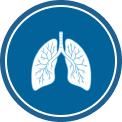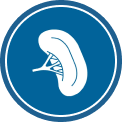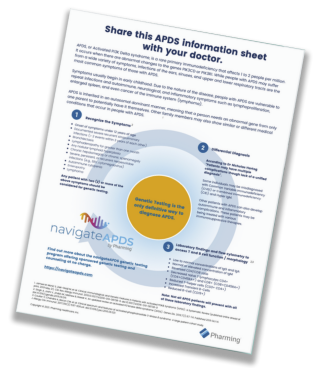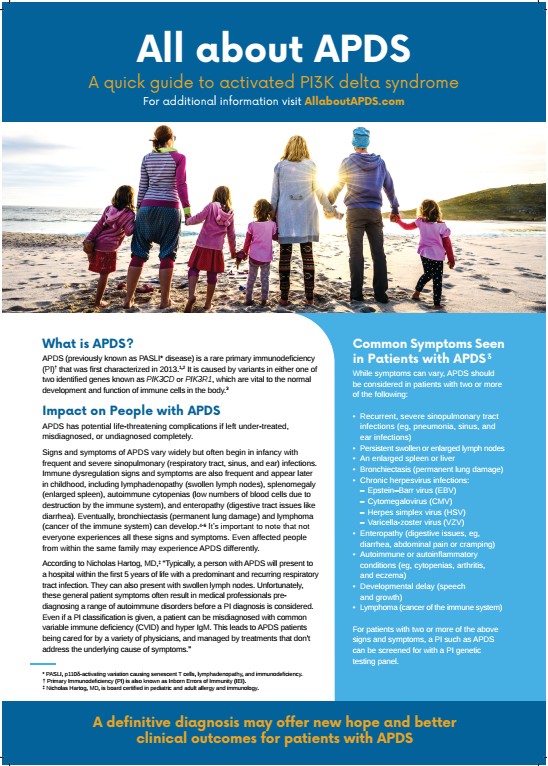
Primary Immunodeficiencies (PI) are diseases in which the immune system is missing or doesn’t function properly, often leading to increased infections and other immune symptoms. Primary means it’s genetic, so the immune impairments are present from birth and they can affect anyone, regardless of age or gender. There are over 450 PIs and they are reported to occur in about one out of every 1,200 people.
APDS – Activated PI3K Delta Syndrome is a rare progressive PI. APDS can be difficult to diagnose, and the reported median diagnostic delay is seven years. Distinguishing between PIs can be difficult because many share common symptoms.

Common variable immune deficiency (CVID) is one of the most frequently diagnosed primary immunodeficiencies.
APDS and CVID share common symptoms. People with CVID and APDS can have frequent infections that usually occur in the ears, sinuses, nose and lungs.
People with APDS can also have lymphadenopathy; immune cells build up in certain areas of the body, making them appear enlarged or swollen.
Patients that have a CVID diagnosis and experience lymphadenopathy or some of the other symptoms outlined below may benefit from a genetic test.
APDS can also resemble autoimmune lymphoproliferative syndrome (ALPS).
Conditions such as anemia, lymphadenopathy and lymphoma are common manifestations of both ALPS and APDS.
A genetic test can definitively diagnose APDS.
Having an accurate diagnosis is crucial and can alter disease management and outcomes.
It is vital that you take note of your symptoms, their frequency and share this information with your doctor. A genetic test should be considered in people experiencing two or more of the symptoms outlined below.
The most common, and often earliest reported APDS symptoms include frequent and severe infections of the ears, sinuses, and upper and lower respiratory tracts which begin in infancy.
Common APDS signs & symptoms include:

96-100% of reported cases

71-89% of reported cases

51% of reported cases

51% of reported cases

36-49% of reported cases

~30% of reported cases

~30% of reported cases

10-31% of reported cases

12-25% of reported cases
If you suffer from any two or more of the above symptoms, consider APDS.
Lymphoma under the age of 26 should raise suspicion of APDS.
Genetic testing can definitively diagnose APDS and many other PIs.
Every year new genetic variants are picked up by the latest genetic tests.
Five years ago we had only identified 200 genes associated with PI, and by 2023 we had identified more than 450.
If you have had a genetic test for a PI such as APDS in the past, speak to your doctor to see if retesting is appropriate for you.


*This program is currently available in the US and Canada only. Eligibility requirements apply.
*This program is currently available in the US and Canada only. Eligibility requirements apply.
